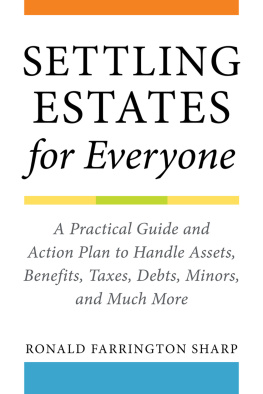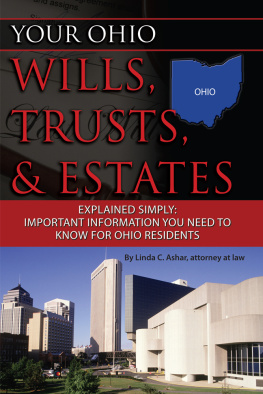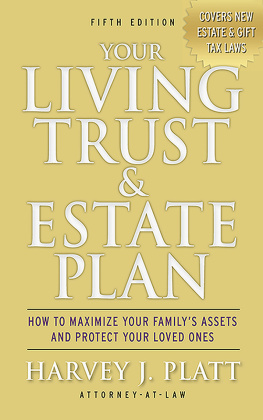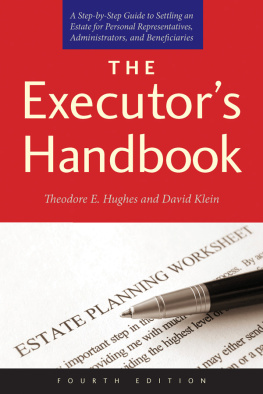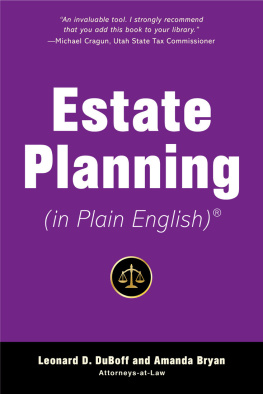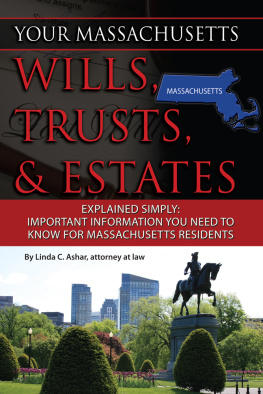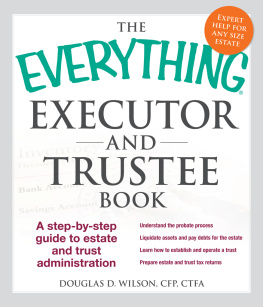


Copyright 2022 by Ronald Farrington Sharp
All rights reserved. Copyright under Berne Copyright Convention, Universal Copyright Convention, and Pan American Copyright Convention. No part of this book may be reproduced, stored in a retrieval system, or transmitted in any form, or by any means, electronic, mechanical, photocopying, recording or otherwise, without the express written consent of the publisher, except in the case of brief excerpts in critical reviews or articles. All inquiries should be addressed to Allworth Press, 307 West 36th Street, 11th Floor, New York, NY 10018.
Allworth Press books may be purchased in bulk at special discounts for sales promotion, corporate gifts, fund-raising, or educational purposes. Special editions can also be created to specifications. For details, contact the Special Sales Department, Allworth Press, 307 West 36th Street, 11th Floor, New York, NY 10018 or .
26 25 24 23 22 5 4 3 2 1
Published by Allworth Press, an imprint of Skyhorse Publishing, Inc. 307 West 36th Street, 11th Floor, New York, NY 10018.
Allworth Press is a registered trademark of Skyhorse Publishing, Inc., a Delaware corporation.
www.allworth.com
Cover design by Mary Belibasakis
Library of Congress Cataloging-in-Publication Data is available on file.
Print ISBN: 978-1-62153-789-2
eBook ISBN: 978-1-62153-790-8
Printed in the United States of America
Contents
Introduction
What needs to be done at the death of a loved one? There are four basic steps that must be followed. First is the arrangement for burial or cremation. Then the assets of the deceased have to be inventoried, followed by getting all debts paid and legal requirements met, followed by distributing the assets to the people who are supposed to get them according to the persons will, trust, or state law. The job can be daunting, expensive, and time-consumingespecially if the deceased had not made proper plans for the estate by setting up a will or trust before-hand. Settling a persons estate is something most people, other than lawyers, have never done. Help is right here.
This book is a guide for those responsible for wrapping up the personal and financial affairs of the deceased. It is not intended to address coping with the emotional issues of the loss or how to handle grieving. It is a resource identifying the steps that may need to be taken prior to and after a persons death. It is a practical guide to assist those who must deal with asset collection and disposition; tax and legal issues; applying for benefits such as Social Security, life insurance, veterans benefits; debts; dealing with issues involving minor children; and employment benefit plans. With this book as a guide, the process of administering and wrapping up a deceaseds estate will be much simpler.
The information in this book is not intended as a replacement for legal advice and is informational in intent. Laws and procedures vary from state to state and even among counties within a state. Federal laws and agencies have their own procedures, which also are in flux and subject to political change. Read and learn, but consult an attorney for legal advice.
CHAPTER ONE
If Death Is Imminent
The time to begin settling the estate of a loved one is when it is clear that death is imminent. Sometimes this is easily established if, for example, attending physicians have made a terminal prognosis. Or, due to poor health or medical circumstances, it appears that the medical prognosis is so poor that there is little likelihood of the person living much longer.
It maybe feels a bit inappropriate, but preparations that can be done now, while the person is still alive, can make the postdeath procedures simpler and less time-consuming, which the loved one would likely want. What can be done depends upon whether the person is mentally competent as well as able and willing to participate in document creation and decision-making. This is important since establishing competency will likely quash any allegations that decisions made and documents created are invalid. An allegation of lack of mental acuity can be the basis for a will contest, undue influence charges, or efforts to invalidate pre-death gifts or to void contracts entered into by the allegedly incompetent person.
LEGAL INCAPACITY/MENTAL INCOMPETENCY
Sometimes it is crystal clear that, due to dementia or severe medical conditions, a person is not mentally capable of making rational decisions. Failure to recognize family members or respond to simple questions are sure signs of this condition.
I have had several instances of someone bringing a parent or other person in, explaining that the person wants to make a will. What I do is explain that because of lawyer/client privilege, I need to talk to Mom alone. I can then determine whether she is aware of what is happening, knows where she is, who her family members are, and so forth to determine whether she is competent or is being subjected to undue influence. In one case Mom said that she didnt know who that guy was that brought her to see me. I refused to take the case; the guy was mad. But I thought it likely that he took Mom to another attorney who would be willing to prepare the will.
Courts are often asked to rule on the legal incapacity of a person (also called mental incompetency, or advanced dementia), usually as part of a petition to appoint a guardian and conservator for medical and business decision-making. The process differs by state, but generally is started by the filing of a written request by an interested party with the court. The petitioner does not have to be a family member, and often the process is initiated by the local adult protective services agency. However, you as a family member can ask the court to have you named as the legal guardian and conservator. Even a concerned neighbor can file the petition in most states.
TEMPORARY GUARDIAN OF ADULT
Typically, the judge will appoint a temporary guardian to represent the allegedly incapacitated person, who personally visits the person and makes a written recommendation to the court. There will also be a psychological evaluation done by a medical professional who also prepares a written opinion and report. If the judge decides there is enough evidence to declare a person incompetent, then a guardian is appointed, as well as a conservator if there are assets that need to be managed. A guardian is in charge of the person while a conservator is in charge of the persons finances.
A court hearing is then scheduled at which the person appears, if possible, as well as those who have the right to object to the petition and have his or her own attorney to challenge the petition.
After considering all evidence, the court will either dismiss the petition or will grant it. If the petition is granted, the court will appoint a permanent guardian and conservator. Sometimes family members will compete for that role, in which case the judge decides who would be the most appropriate person.
POWERS OF ATTORNEY
The court process can be avoided if the incapacitated person has the right sort of documents in place that define mental incapacity and appoint decision-makers for health and business purposes if those conditions are met. These documents of course must have been signed before incapacity to be valid.
Next page
